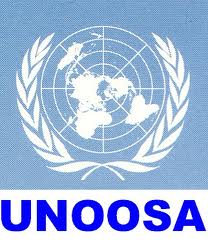 The Legal Subcommittee of the United Nations Committee on the Peaceful Uses of Outer Space (COPUOS) started its 51st session on 19 March at the Vienna International Centre, under the supervision of UNOOSA. The United Nations Office for Outer Space Affairs (UNOOSA) is the United Nations office responsible for promoting international cooperation in the peaceful uses of outer space. The Subcommittee has played a great role in the development of the international legal status regulating the space activities of States, which includes five treaties and five sets of declarations and principles on outer space activities. Through these treaties and principles, it has touched base on issues such as the status and level of application of the Outer Space Treaty (1967) and other UN treaties on outer space, and has dealt with topical space-related topics within the framework of space law.
The Legal Subcommittee of the United Nations Committee on the Peaceful Uses of Outer Space (COPUOS) started its 51st session on 19 March at the Vienna International Centre, under the supervision of UNOOSA. The United Nations Office for Outer Space Affairs (UNOOSA) is the United Nations office responsible for promoting international cooperation in the peaceful uses of outer space. The Subcommittee has played a great role in the development of the international legal status regulating the space activities of States, which includes five treaties and five sets of declarations and principles on outer space activities. Through these treaties and principles, it has touched base on issues such as the status and level of application of the Outer Space Treaty (1967) and other UN treaties on outer space, and has dealt with topical space-related topics within the framework of space law.
The session will last until 30 March and the key output will be finalizing the report of the Working Group on National Legislation Relevant to the Peaceful Exploration and Use of Outer Space. An exhaustive exchange of national space legislation items, the report gives guidelines on how countries should regulate their internal space activities and coordinate governmental and private entities to their best interest. Matters of authorizing, licensing, and supervising are also addressed.
On Monday, 19 March, a symposium on the “Transfer of ownership of space objects: Issues of responsibility, liability and registration” was held, addressing a potential gap in existing treaties which were drafted at a time of State monopoly, when a commercial market for transfer of ownership and control of space objects in orbit was not foreseen.
The session includes a technical presentation on the status of space debris by Dr. Carsten Wiedemann of the Technische Universitat Braunschweig. There is also a working group on the Definition and Delimitation of Outer Space, addressing the knotty issue of legally defining space.
Space law has become increasingly relevant as more nations become highly active in the utilization of space and more space traffic makes international clashes all but inevitable. The video below recounts the roots of space law and the purpose it serves.

















































































































![A trajectory analysis that used a computational fluid dynamics approach to determine the likely position and velocity histories of the foam (Credits: NASA Ref [1] p61).](http://www.spacesafetymagazine.com/wp-content/uploads/2014/05/fluid-dynamics-trajectory-analysis-50x50.jpg)



Leave a Reply